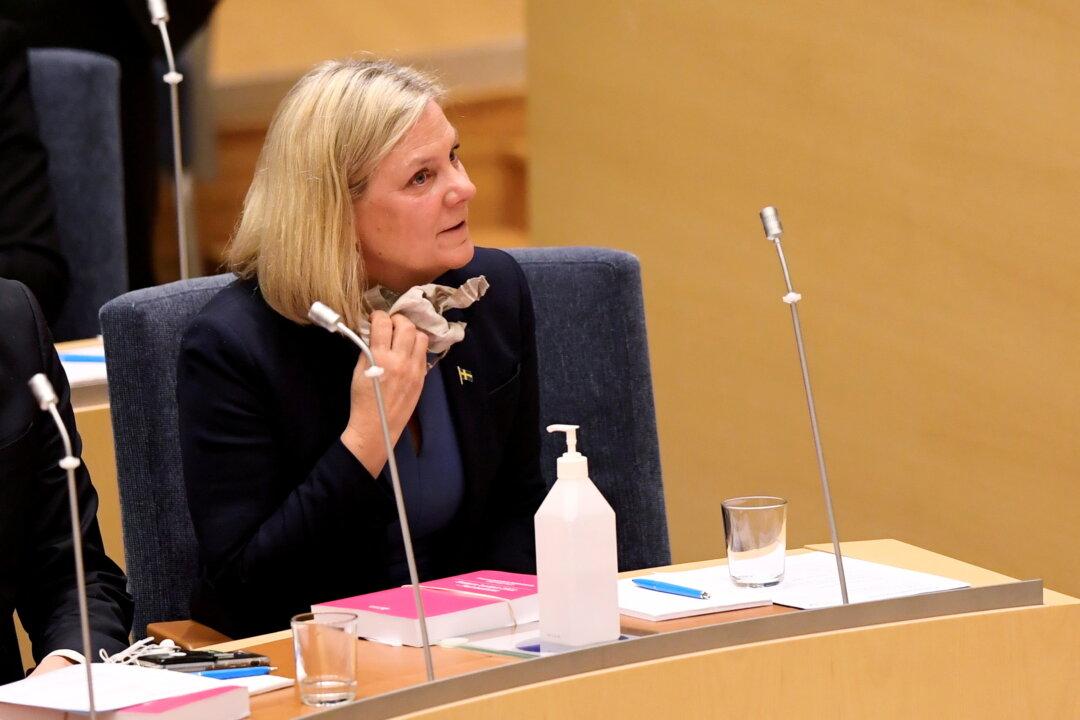STOCKHOLM—Sweden’s first female prime minister, Social Democrat Magdalena Andersson, resigned on Wednesday after less than 12 hours in the top job after the Green Party quit their two-party coalition, stoking political uncertainty.
But Andersson said she had told the speaker of parliament she hoped to be appointed prime minister again as the head of a single-party government, and the prospects of that happening appeared fairly strong given support from other parties.





